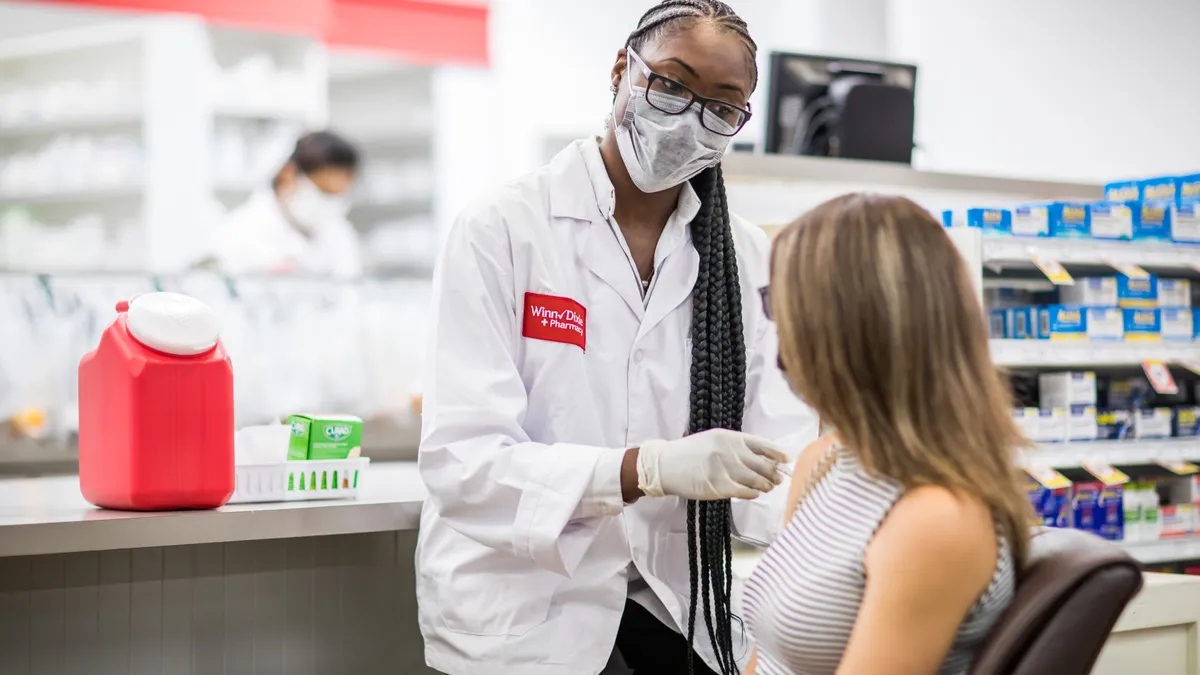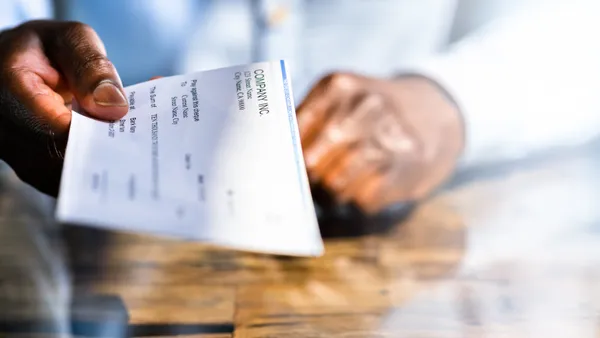Dive Brief:
- Fifty-six percent of employed adults said they would get a COVID-19 vaccine if available to them, according to the Feb. 3 results of a Morning Consult survey of 16,970 employed U.S. adults, conducted between Oct. 29, 2020, and Jan. 29, 2021. That figure rose to 61% during the survey's final week.
- Workers in higher education were the most likely to report they'd sign up for a poke in the arm, with 77% saying they would be willing. Willingness reached a low among food and beverage workers, at 47%.
- The firm's most recent weekly report found lower willingness rates among women, people without higher education and respondents from rural areas. Black and Hispanic respondents were less likely to say they'd get a vaccine as well.
Dive Insight:
Vaccine incentives may boost workers' willingness to get vaccinated, but employers say they need need clarity over how incentives such as cash awards may interact with anti-discrimination laws.
Morning Consult's findings closely mirror a January poll from analytics firm Perceptyx, which found that 53% of 1,000 U.S. workers would "likely" consent to a vaccination if one became available.
The Perceptyx poll indicated employer incentives may encourage more workers to receive a vaccine. Fifty-six percent said they would get vaccinated if they were encouraged by their employers. And 60% said they would line up for a shot if their employers offered a $100 award.
Several household names have announced plans to tie bonuses to vaccines. Kroger, for instance, announced it will give a $100 one-time payment to workers who get the vaccine.
It's questionable whether such incentives will play nice with anti-discrimination laws. The Society for Human Resource Management and 41 other business groups asked the U.S. Equal Employment Opportunity Commission to clarify "the extent to which employers may offer employees incentives to vaccinate" without infringing upon the boundaries established by the Americans with Disabilities Act and other laws in a Feb. 1 letter.
Some employers have opted to incentivize vaccinations by offering workers paid time off to receive the vaccine and deal with any side effects. McDonald's, for example, said it will give workers at company-owned restaurants four hours of PTO, and Chobani announced it will cover up to six hours of time for employees to receive the vaccine.
Incentives involving PTO are less of a concern for employers; in fact, some state and local laws may require employers to provide PTO for workers to recover from the side effects, according to management-side attorneys.














